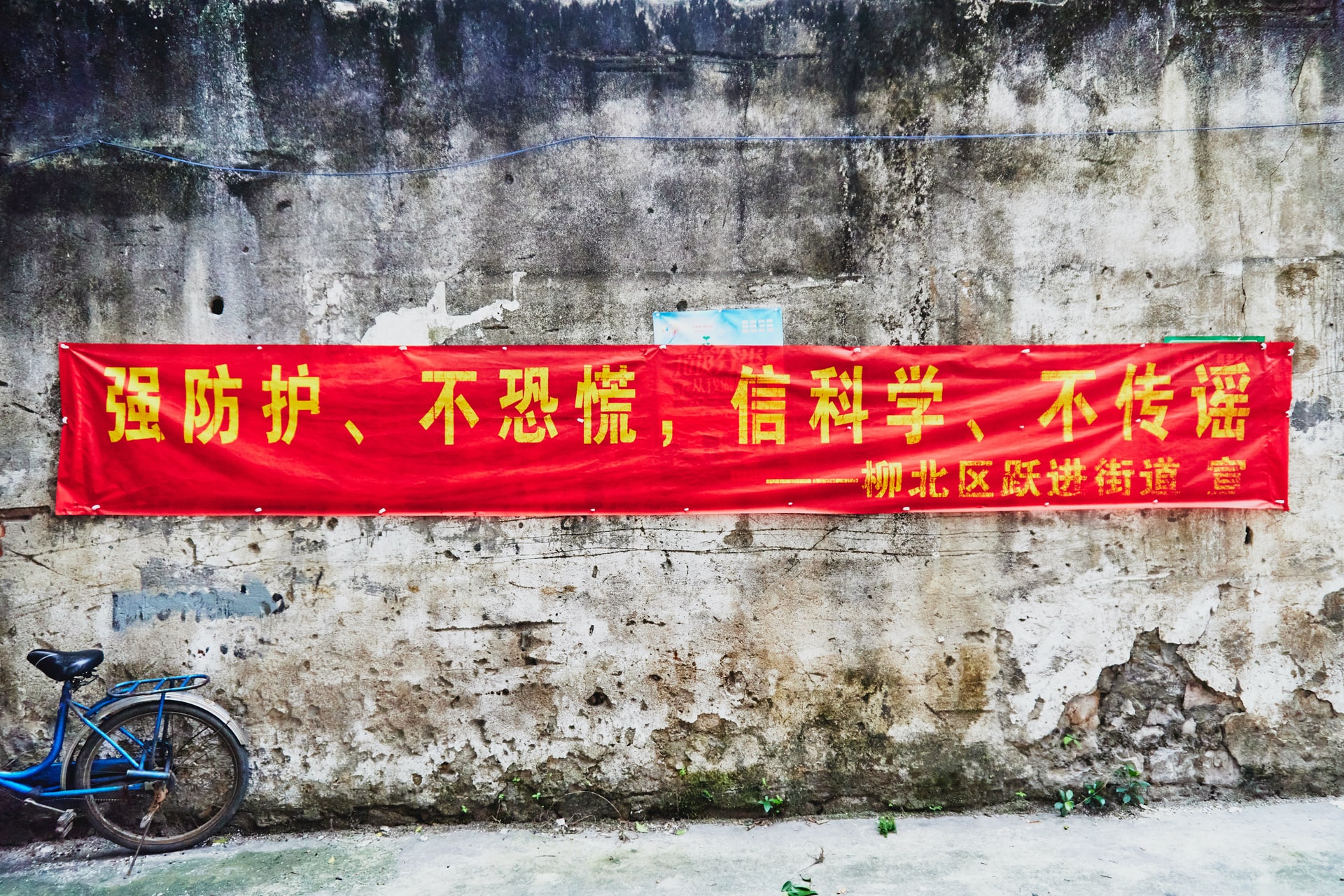This post is also available in: Euskara Español
This post is also available in: Euskara Español

Director of the Chair for Diplomacy and Geopolitics at the European Institute for International Studies.
The legitimacy of the Chinese Communist Party (CCP) with the Chinese people to govern the country rests on three pillars: social and political stability, economic growth and development and re-establishing China’s position as a leading global power. In recent years, as the second pillar has become more difficult the third pillar has become more important. For most of the last two thousand years China (“zhongguo” – the middle or central country) has been the most powerful and civilised country in the world. Until the arrival of the westerners, trading opium for silks and ceramics and carving up the country into foreign concessions. Thus began what the CCP calls the century of humiliation. Its claim to legitimacy rests largely on its success in ending this humiliation and returning China to its rightful place in the centre. If Donald Trump’s slogan is “Make America Great Again”, Xi Jinping’s is “Make China Zhonguo Again”.
Deng Xiaoping, the architect of China’s opening to the world, advised his successors to “taoguang yanghui” – “Hide brightness, Nourish darkness” – in their dealings with the outside world. More prosaically this can be interpreted as keeping a low profile, hiding China’s strength, while it develops. This was only temporary advice. Deng believed China was not strong enough for confrontation, especially with the US, and it would be better to avoid the limelight until it was ready. Xi clearly thinks that China is now ready to adopt a higher profile, whether driving ahead with the Belt Road Initiative or asserting its sovereignty in the South China Sea. There are many in China who disagree with Xi, but the disagreement is about timing rather than content. They fear that Xi went too soon and is risking China’s achievements.

The wolf warrior diplomats, so-called from blockbuster films about an elite Chinese commando unit, symbolise Xi’s new aggressive foreign policy. Led by the Ministry of Foreign Affairs spokesman Zhao Lijian, they use Twitter and other social media to attack their hosts, push back at negative stories and promote fringe conspiracy theories. They have little time for the traditional low-key Chinese diplomats who they believe have allowed foreign governments and NGOs to criticise China’s human rights record or behaviour in Xinjiang and Tibet without pushing back at the hypocrisy of the West. If China is Zhongguo again then other countries should show it respect, and if not they will attack the west for its failings in the Middle East and North Africa, or the social and economic inequalities in its own societies. They are less worried about the impact on foreign public opinion than in demonstrating to the Chinese public (and their bosses) that they are not allowing China to be humiliated by the West.
When the COVID-19 outbreak struck in Wuhan, China’s initial response (after the blundering by Hubei officials) was more traditional. It made a great show of collaborating with the WTO and the international community, even as western analysts, driven more by ideology than knowledge of China, pontificated that this was China’s Chernobyl moment and that the end of the CCP was nigh. As the virus spread globally, China sent protective and testing equipment and medical staff to the worst affected countries, notably Italy and Spain. This so-called “mask diplomacy” has some impact on the local populations, especially as that stage they were receiving little help from their EU partners (Germany even prohibited the export of protective equipment). At the same time China’s critics in the West warned about China using the virus to increase its influence, and themselves used China’s handling of the virus to re-open issues like the presence of Huawei in Europe’s 5G networks. As the impact of the crisis grew in the West, and especially its economic impact, voices criticising China and blaming it for the crisis grew louder.

When the US President began talking about the Wuhan virus and claiming the virus had escaped from a research facility in Wuhan, the wolf warriors diplomats were let off the leash. MFA spokesman Zhao speculated that the US army had taken the virus to China. The Chinese Embassy in Paris accused the French government of abandoning its elderly to die in care homes. The Chinese Ambassador in Australia warned the Australian government that China would stop buying its agricultural products if it insisted on an independent inquiry into the outbreak. Not all Chinese diplomats adopted this aggressive approach – the veteran Chinese ambassador in Washington publicly rubbished Zhao’s conspiracy theory. Friends of China around the world bemoaned the harm these wolf warrior diplomats were doing to China’s reputation. But they were missing the point. These activities were showing the Chinese population not only how their diplomats were pushing back at western criticism of China, but also how much better the Chinese government had managed the crisis than others.
How China emerges from the COVID-19 crisis will depend on how the US emerges. Both will be weakened, and China will face further push back from some countries, including within Europe. But with the US even less interested in playing a global role, China will also confront opportunities. In the short term, China-US relations will be dominated by the US Presidential election, and President Trump’s efforts to divert attention from his own mismanagement of the crisis by blaming China. The Fox news organisation has already “leaked” a fake intelligence report purportedly from the “5 Eyes” organisation criticising China in one of its Australian newspapers, providing material to be picked up later by Trump and his Secretary of State Pompeo. There will be much more of the same as November nears. The wolf warrior diplomats will not take it sitting down.
SHAUN RIORDAN. Director of the Chair for Diplomacy and Geopolitics at the European Institute for International Studies.
SHAUN RIORDAN. Director of the Chair for Diplomacy and Geopolitics at the European Institute for International Studies.

| Cookie | Duration | Description |
|---|---|---|
| cookielawinfo-checkbox-advertisement | 1 year | Set by the GDPR Cookie Consent plugin, this cookie records the user consent for the cookies in the "Advertisement" category. |
| cookielawinfo-checkbox-analytics | 1 year | Set by the GDPR Cookie Consent plugin, this cookie records the user consent for the cookies in the "Analytics" category. |
| cookielawinfo-checkbox-necessary | 1 year | Set by the GDPR Cookie Consent plugin, this cookie records the user consent for the cookies in the "Necessary" category. |
| cookielawinfo-checkbox-others | 1 year | Set by the GDPR Cookie Consent plugin, this cookie stores user consent for cookies in the category "Others". |
| CookieLawInfoConsent | 1 year | CookieYes sets this cookie to record the default button state of the corresponding category and the status of CCPA. It works only in coordination with the primary cookie. |
| viewed_cookie_policy | 1 year | The GDPR Cookie Consent plugin sets the cookie to store whether or not the user has consented to use cookies. It does not store any personal data. |
| Cookie | Duration | Description |
|---|---|---|
| AMP_TOKEN | less than a minute | Google Analytics sets this cookie to allow a user to view an AMP page on one domain and then view another AMP page on a different domain while maintaining the same user session. |
| _ga | 1 year 1 month 4 days | Google Analytics sets this cookie to calculate visitor, session and campaign data and track site usage for the site's analytics report. The cookie stores information anonymously and assigns a randomly generated number to recognise unique visitors. |
| _gat_gtag_UA_* | 1 minute | Google Analytics sets this cookie to store a unique user ID. |
| _gid | 1 day | Google Analytics sets this cookie to store information on how visitors use a website while also creating an analytics report of the website's performance. Some of the collected data includes the number of visitors, their source, and the pages they visit anonymously. |
| Cookie | Duration | Description |
|---|---|---|
| CONSENT | 2 years | YouTube sets this cookie via embedded YouTube videos and registers anonymous statistical data. |
| VISITOR_INFO1_LIVE | 5 months 27 days | YouTube sets this cookie to measure bandwidth, determining whether the user gets the new or old player interface. |
| YSC | session | Youtube sets this cookie to track the views of embedded videos on Youtube pages. |
| yt-remote-connected-devices | never | YouTube sets this cookie to store the user's video preferences using embedded YouTube videos. |
| yt-remote-device-id | never | YouTube sets this cookie to store the user's video preferences using embedded YouTube videos. |
| Cookie | Duration | Description |
|---|---|---|
| edgt-post-views_11758 | 1 year 1 month 4 days | Description is currently not available. |
| edgt-post-views_11778 | 1 year 1 month 4 days | Description is currently not available. |
| edgt-post-views_11786 | 1 year 1 month 4 days | Description is currently not available. |
| edgt-post-views_11942 | 1 year 1 month 4 days | Description is currently not available. |
| edgt-post-views_11973 | 1 year 1 month 4 days | Description is currently not available. |
| edgt-post-views_12204 | 1 year 1 month 4 days | Description is currently not available. |
| edgt-post-views_12400 | 1 year 1 month 4 days | Description is currently not available. |
| edgt-post-views_12484 | 1 year 1 month 4 days | Description is currently not available. |
| edgt-post-views_12492 | 1 year 1 month 4 days | Description is currently not available. |
| edgt-post-views_12670 | 1 year 1 month 4 days | Description is currently not available. |
| edgt-post-views_12760 | 1 year 1 month 4 days | Description is currently not available. |
| edgt-post-views_12808 | 1 year 1 month 4 days | Description is currently not available. |
| edgt-post-views_12960 | 1 year 1 month 4 days | Description is currently not available. |
| edgt-post-views_13109 | 1 year 1 month 4 days | Description is currently not available. |
| edgt-post-views_13522 | 1 year 1 month 4 days | Description is currently not available. |
| edgt-post-views_13584 | 1 year 1 month 4 days | Description is currently not available. |
| edgt-post-views_13745 | 1 year 1 month 4 days | Description is currently not available. |
| edgt-post-views_13812 | 1 year 1 month 4 days | Description is currently not available. |
| edgt-post-views_13953 | 1 year 1 month 4 days | Description is currently not available. |
| edgt-post-views_14002 | 1 year 1 month 4 days | Description is currently not available. |
| edgt-post-views_18325 | 1 year 1 month 4 days | Description is currently not available. |
| edgt-post-views_18501 | 1 year 1 month 4 days | Description is currently not available. |
| edgt-post-views_18705 | 1 year 1 month 4 days | Description is currently not available. |
| edgt-post-views_20075 | 1 year 1 month 4 days | Description is currently not available. |
| edgt-post-views_20093 | 1 year 1 month 4 days | Description is currently not available. |
| __wpdm_client | session | Description is currently not available. |
| Cookie | Duration | Description |
|---|---|---|
| mail_session | 7 days | Mailjet sets this cookie while signing up for a newsletter. |
| __cf_bm | 30 minutes | Cloudflare set the cookie to support Cloudflare Bot Management. |

